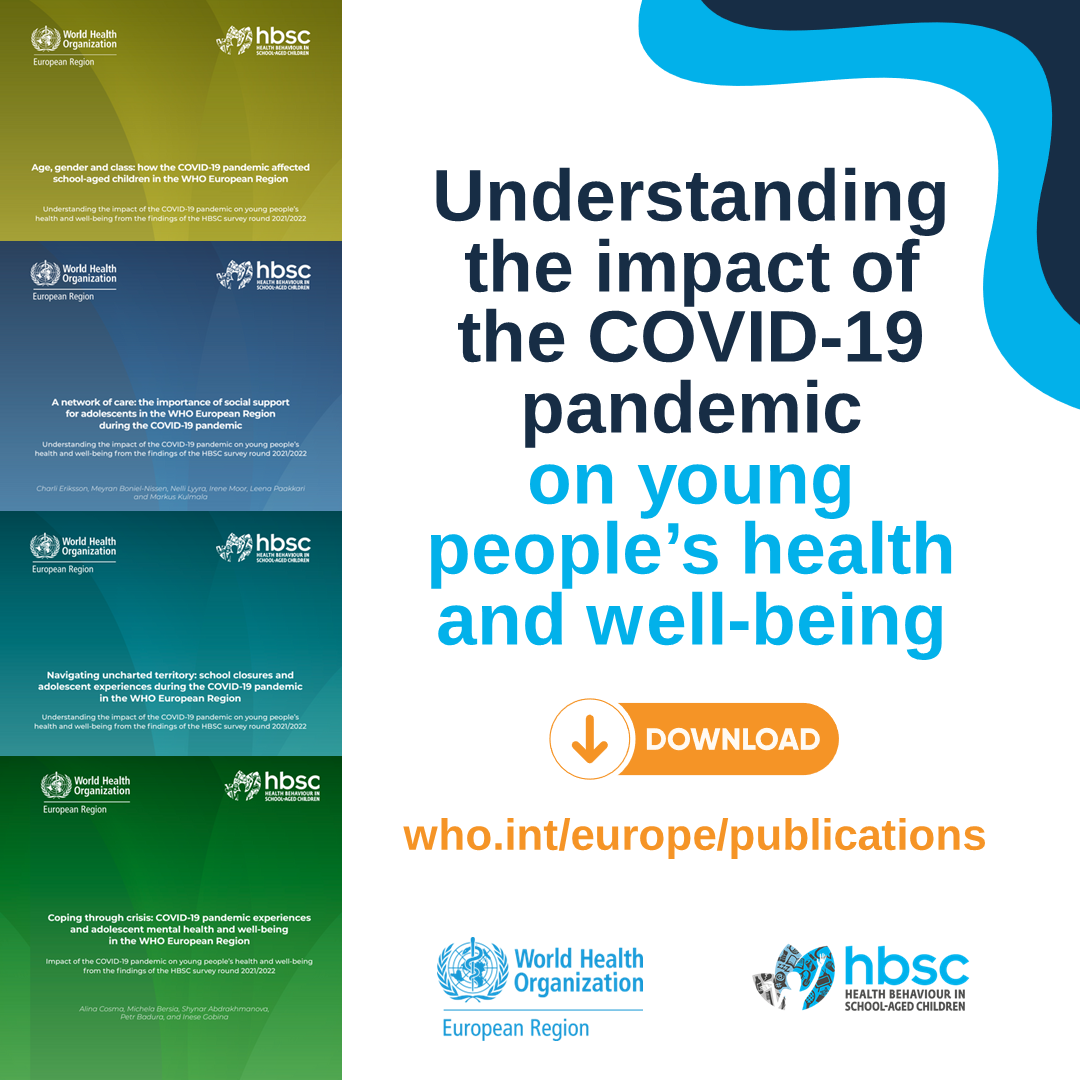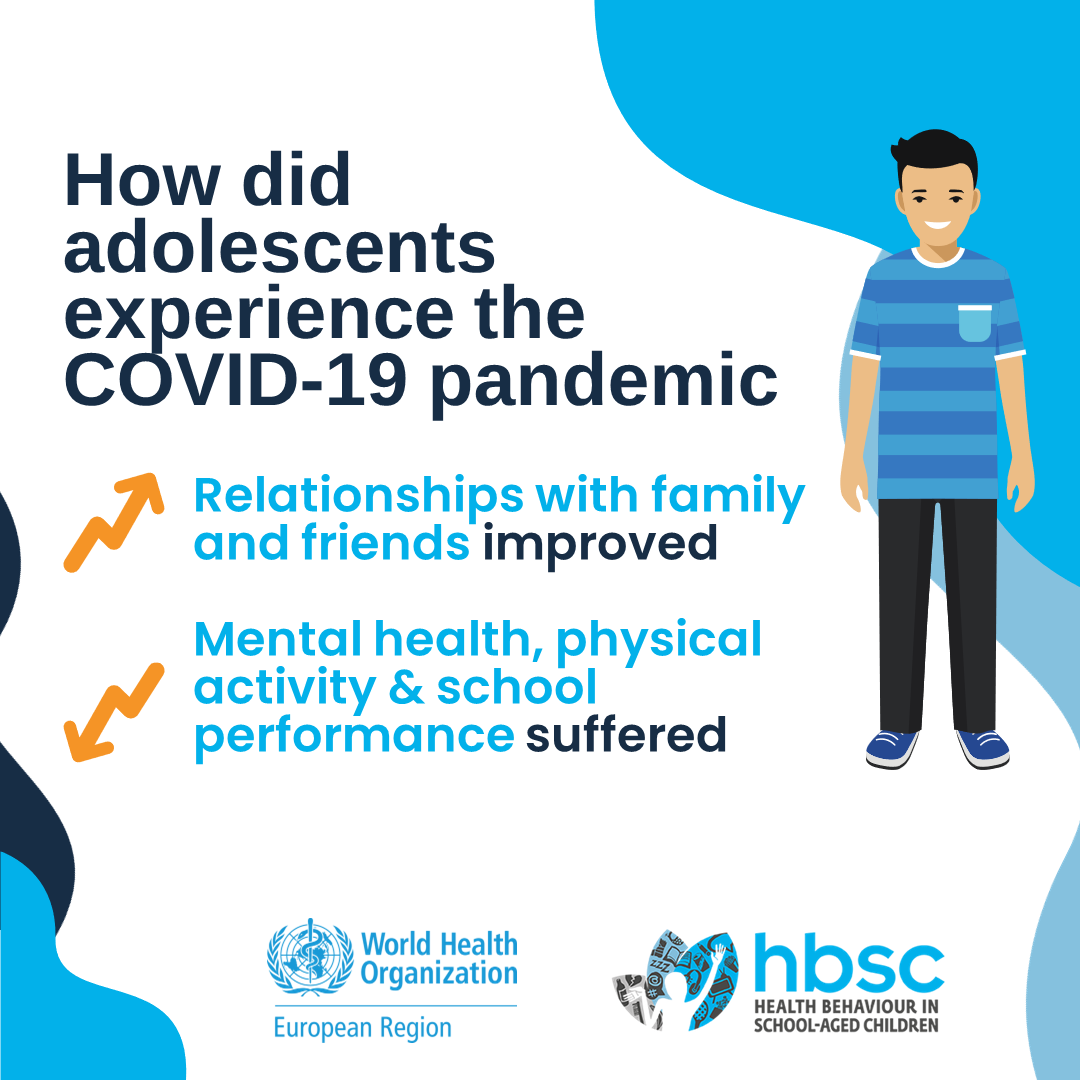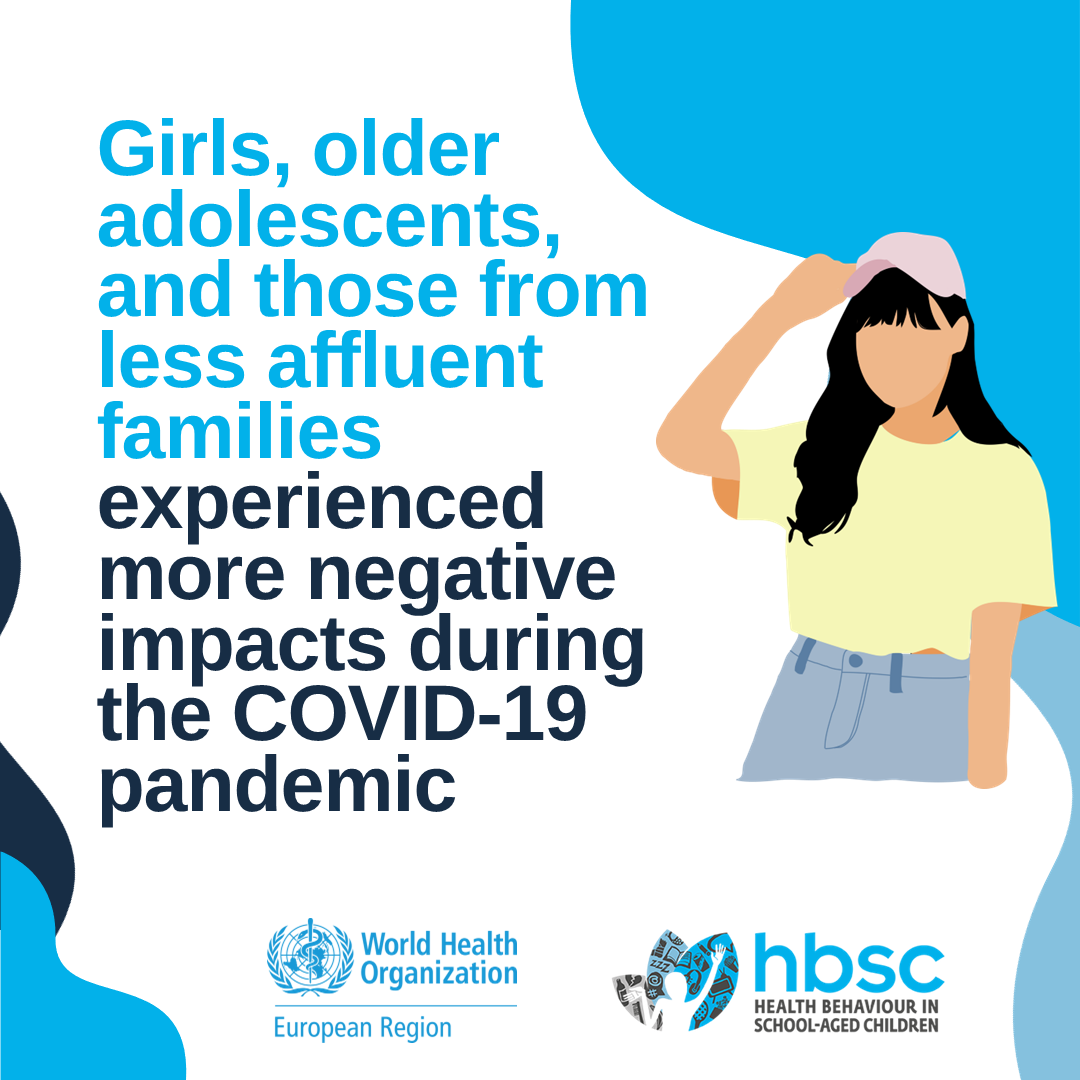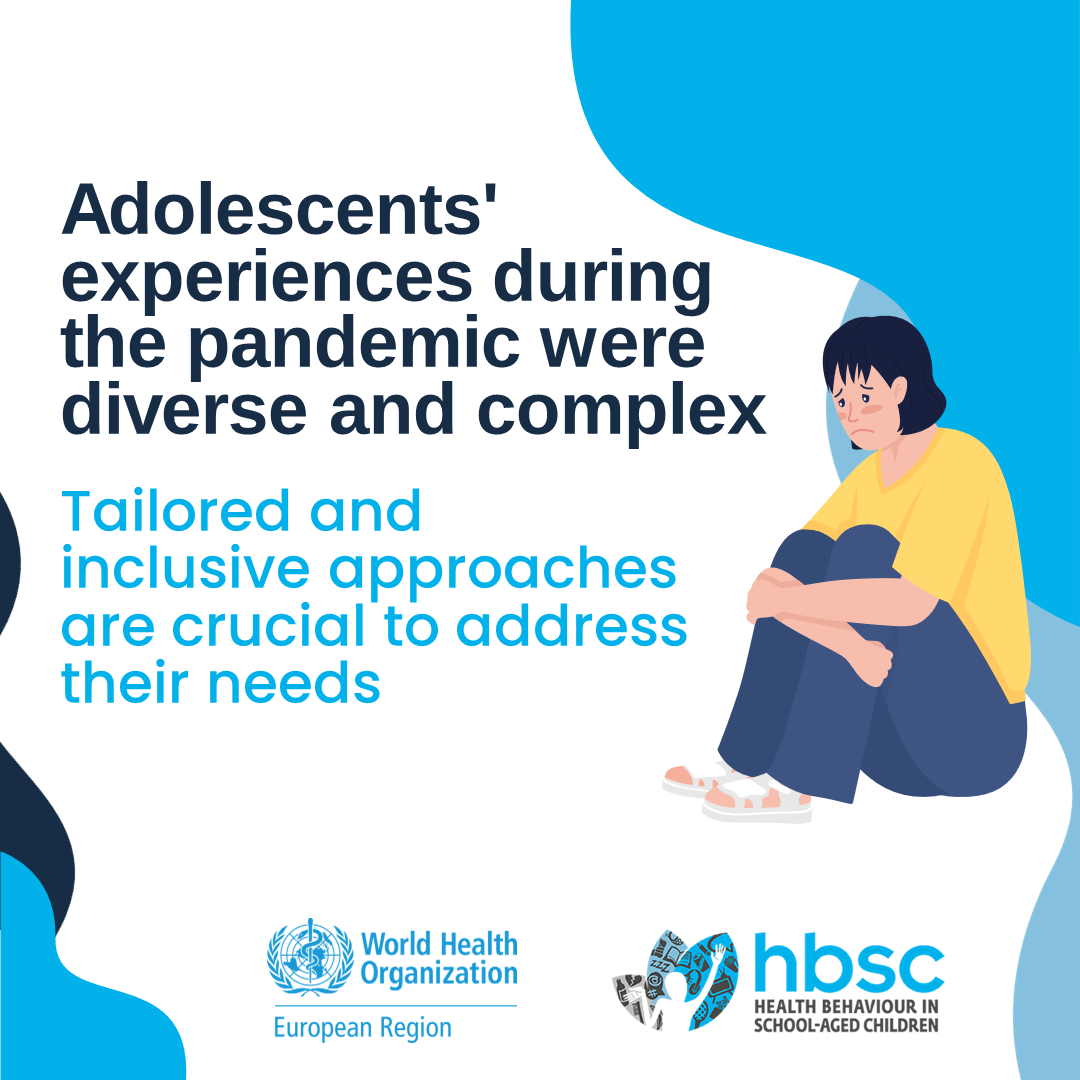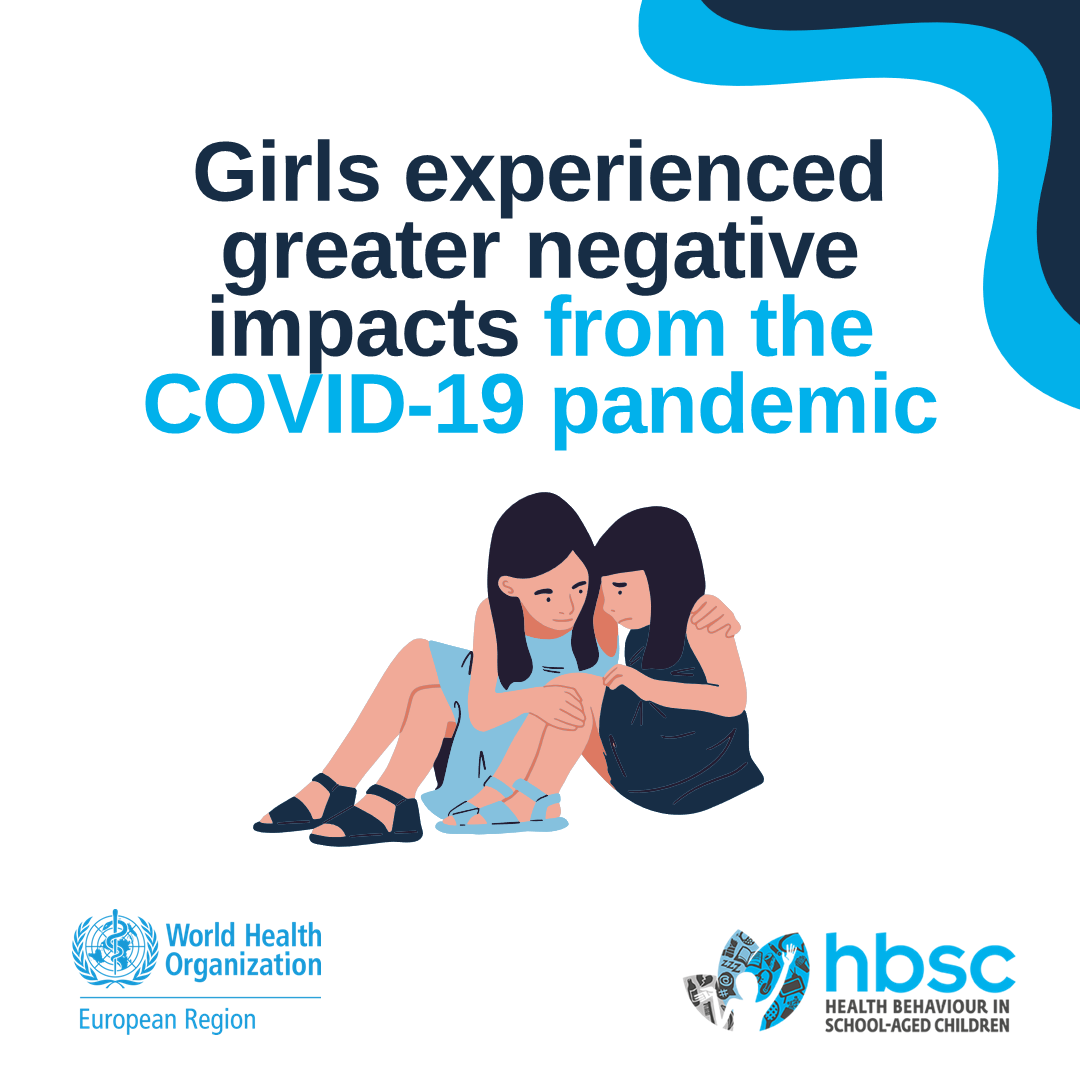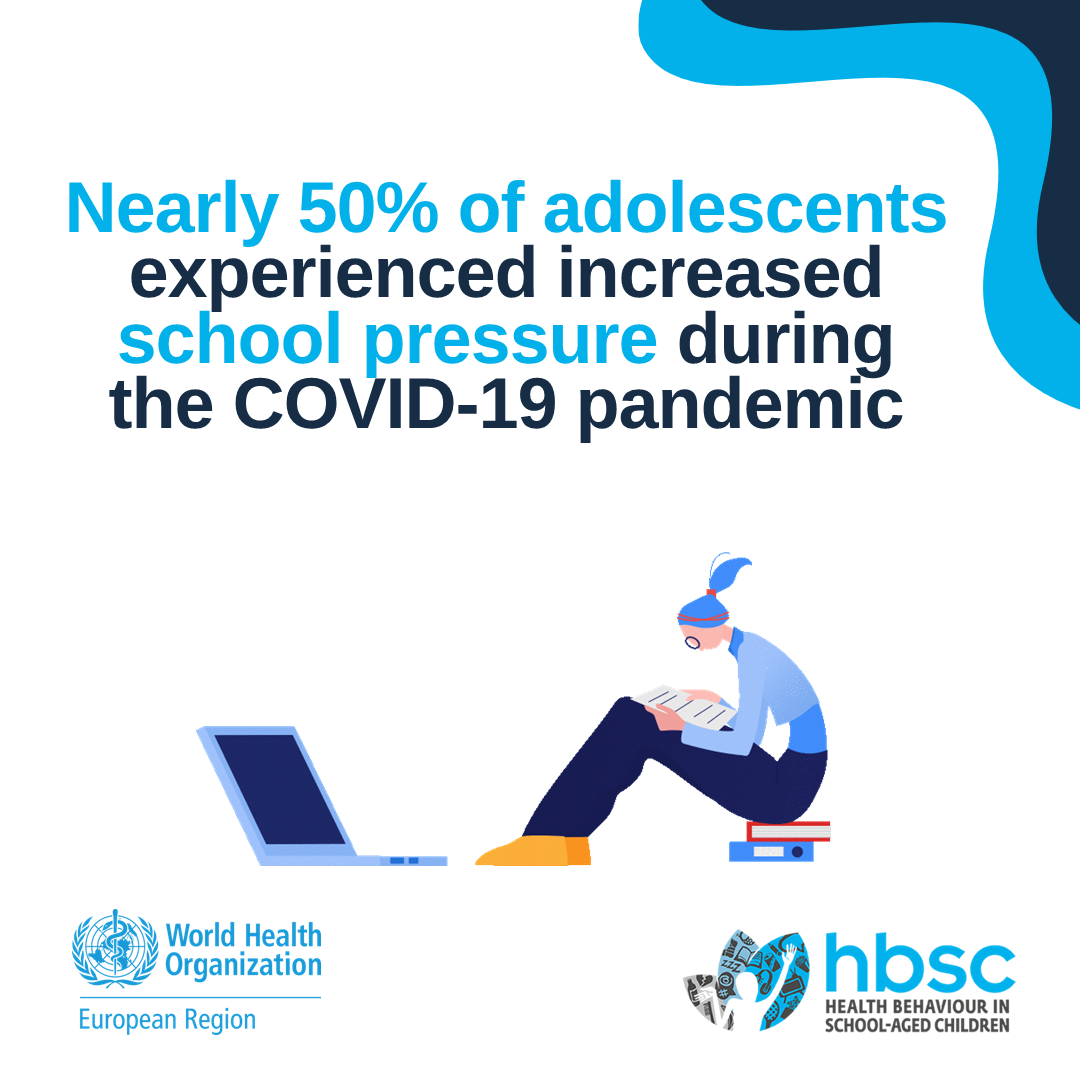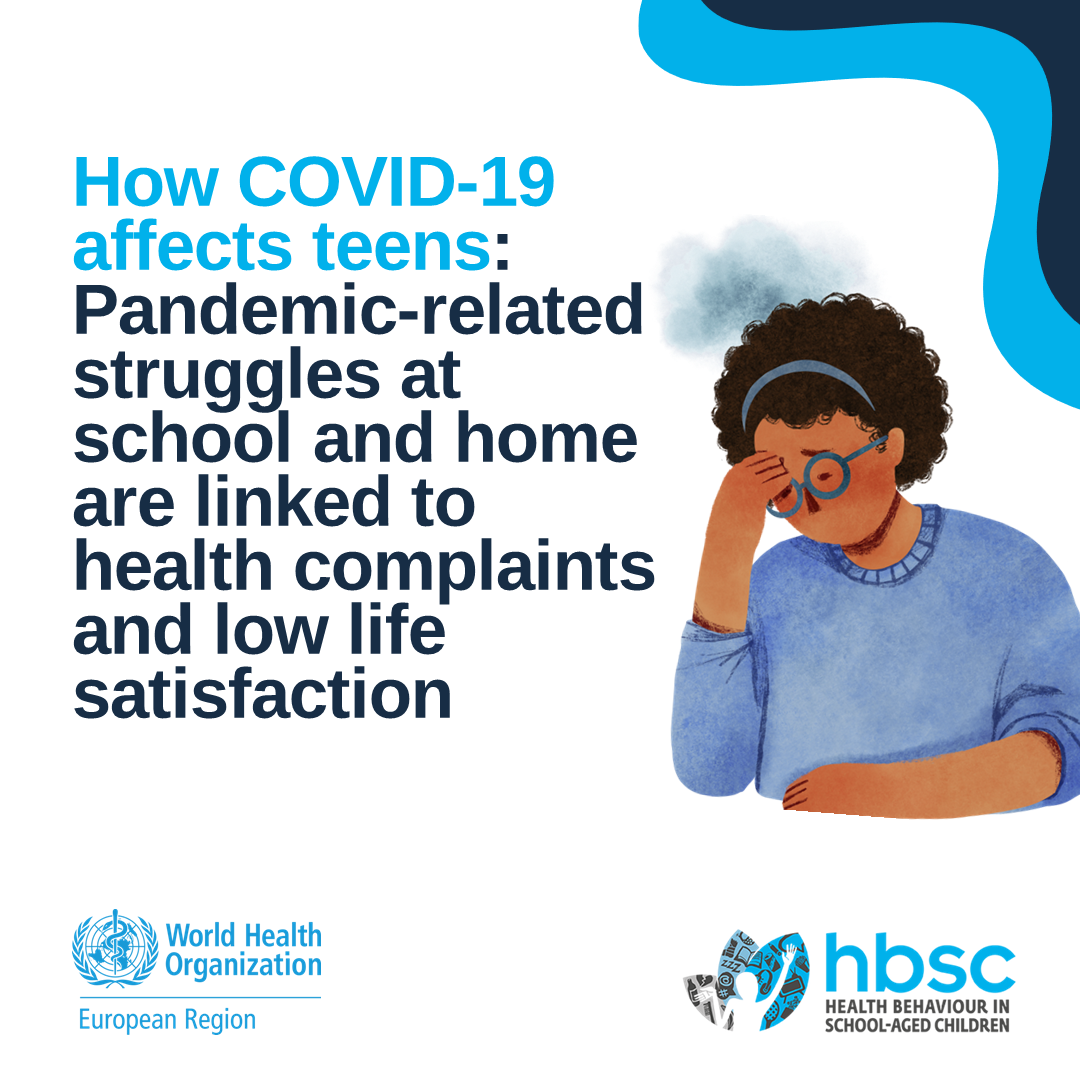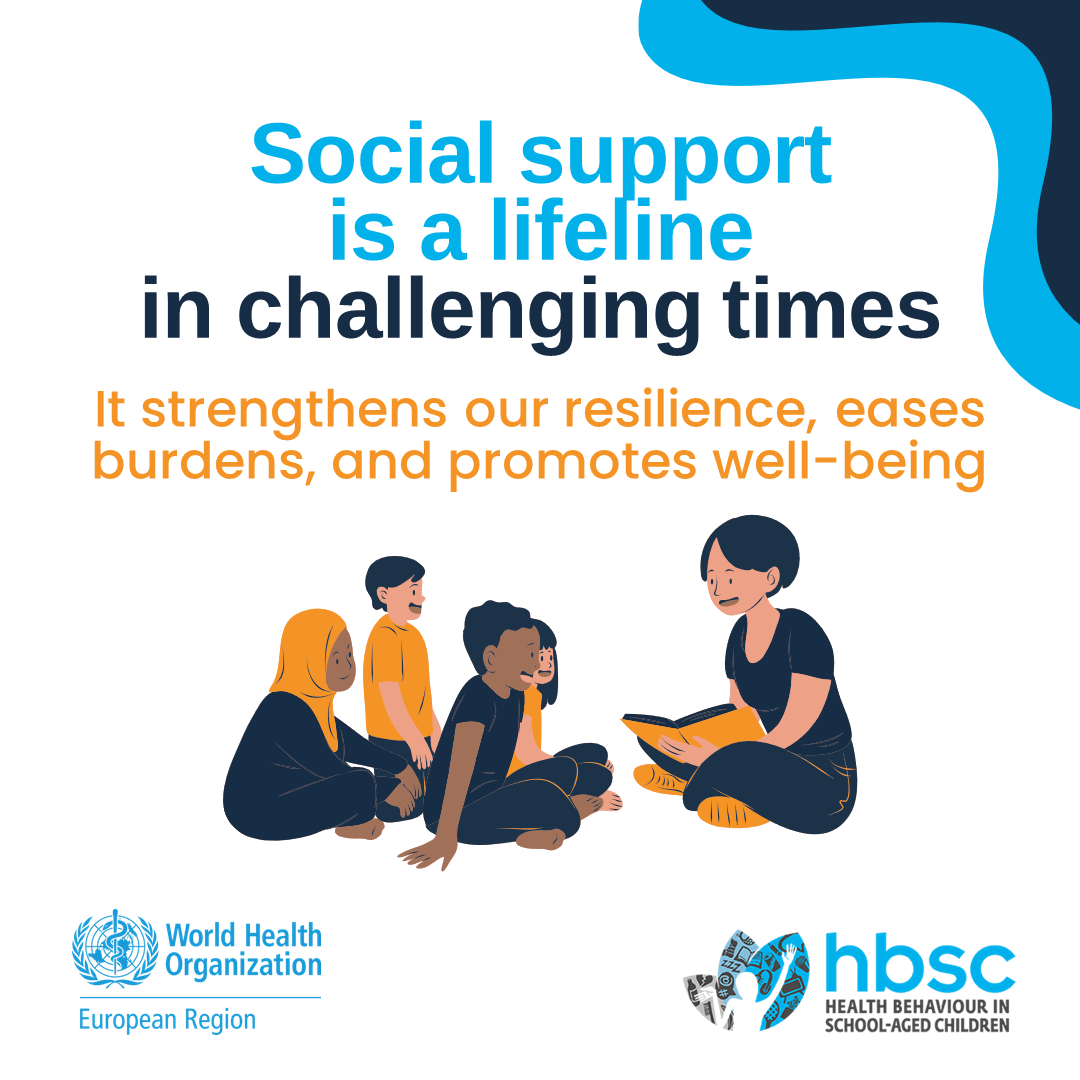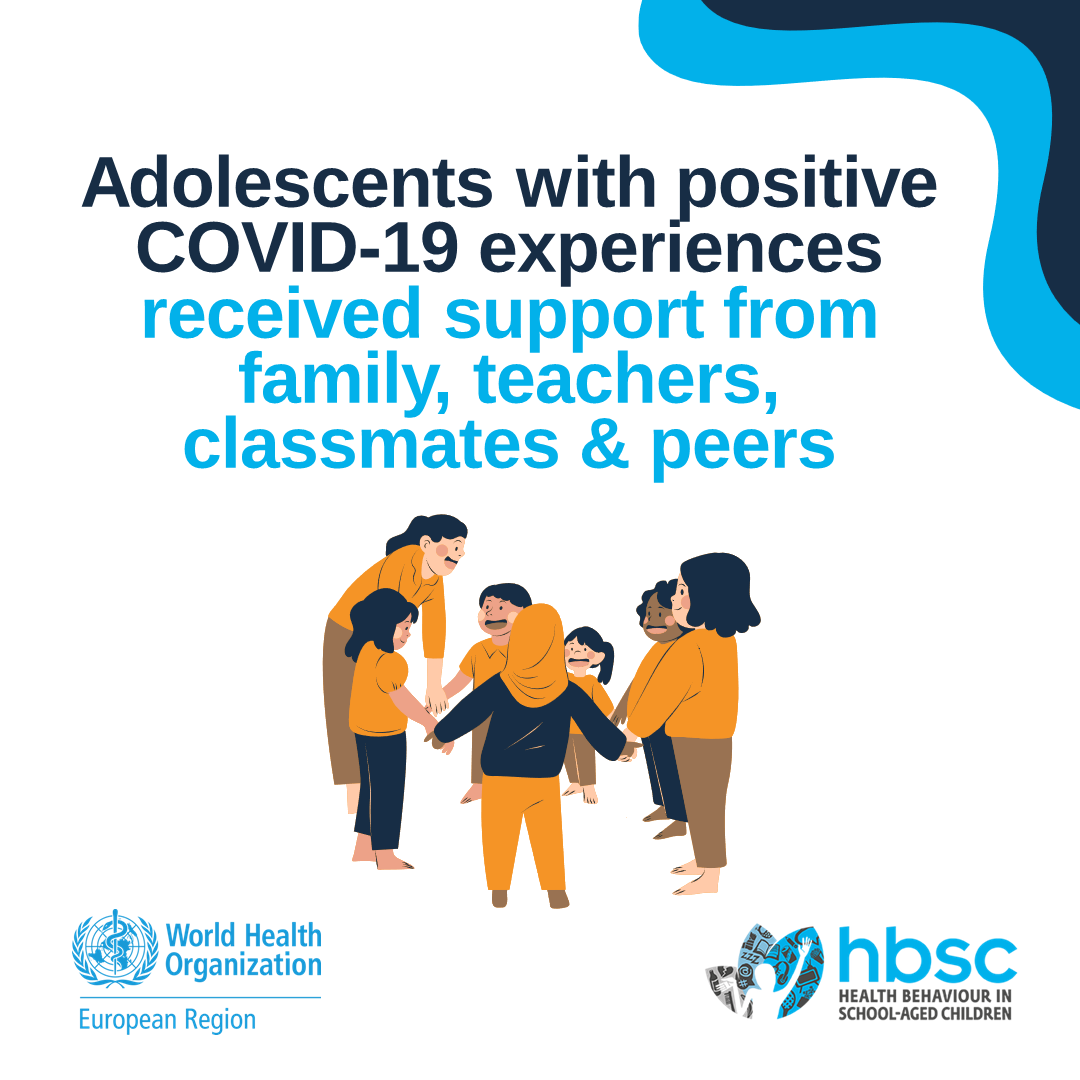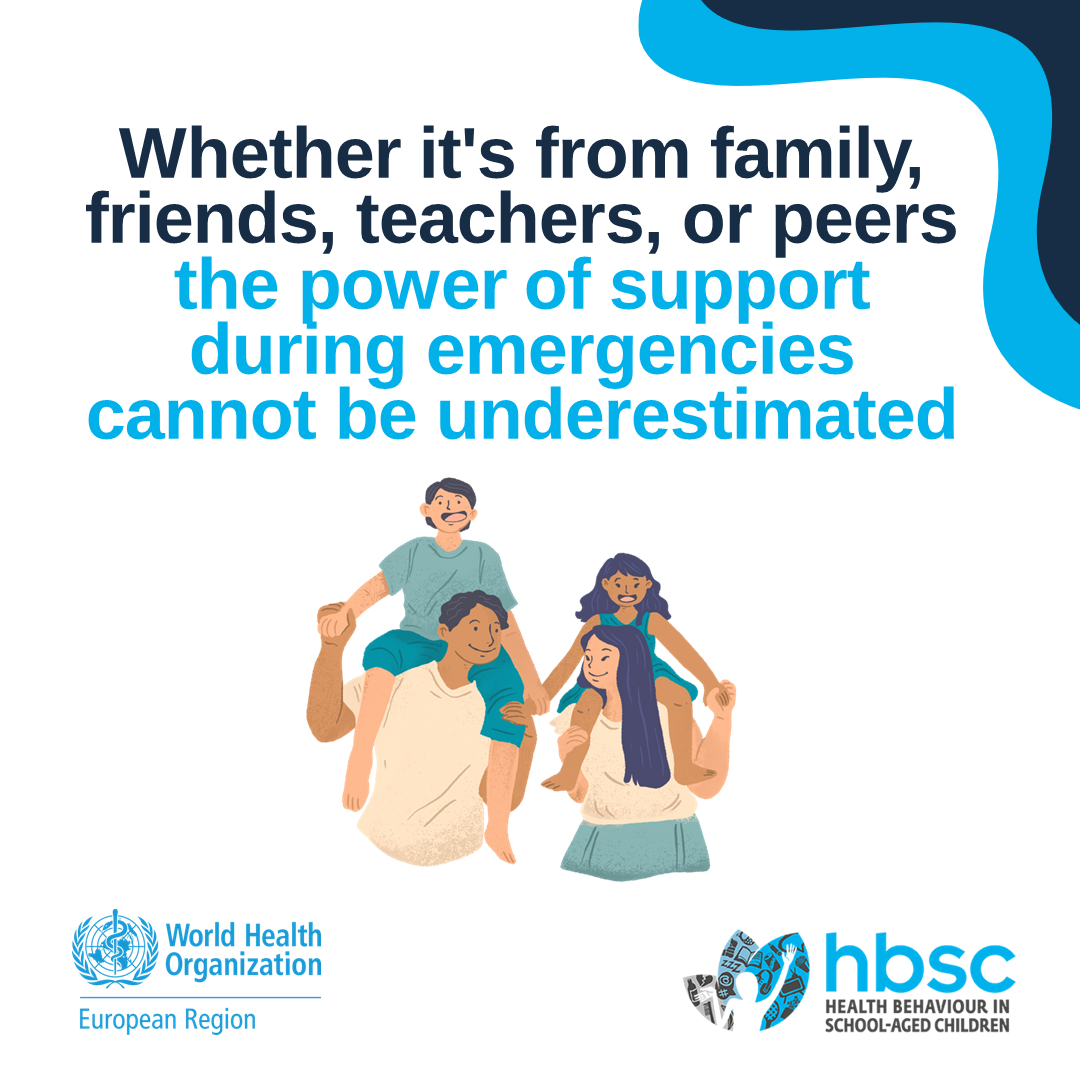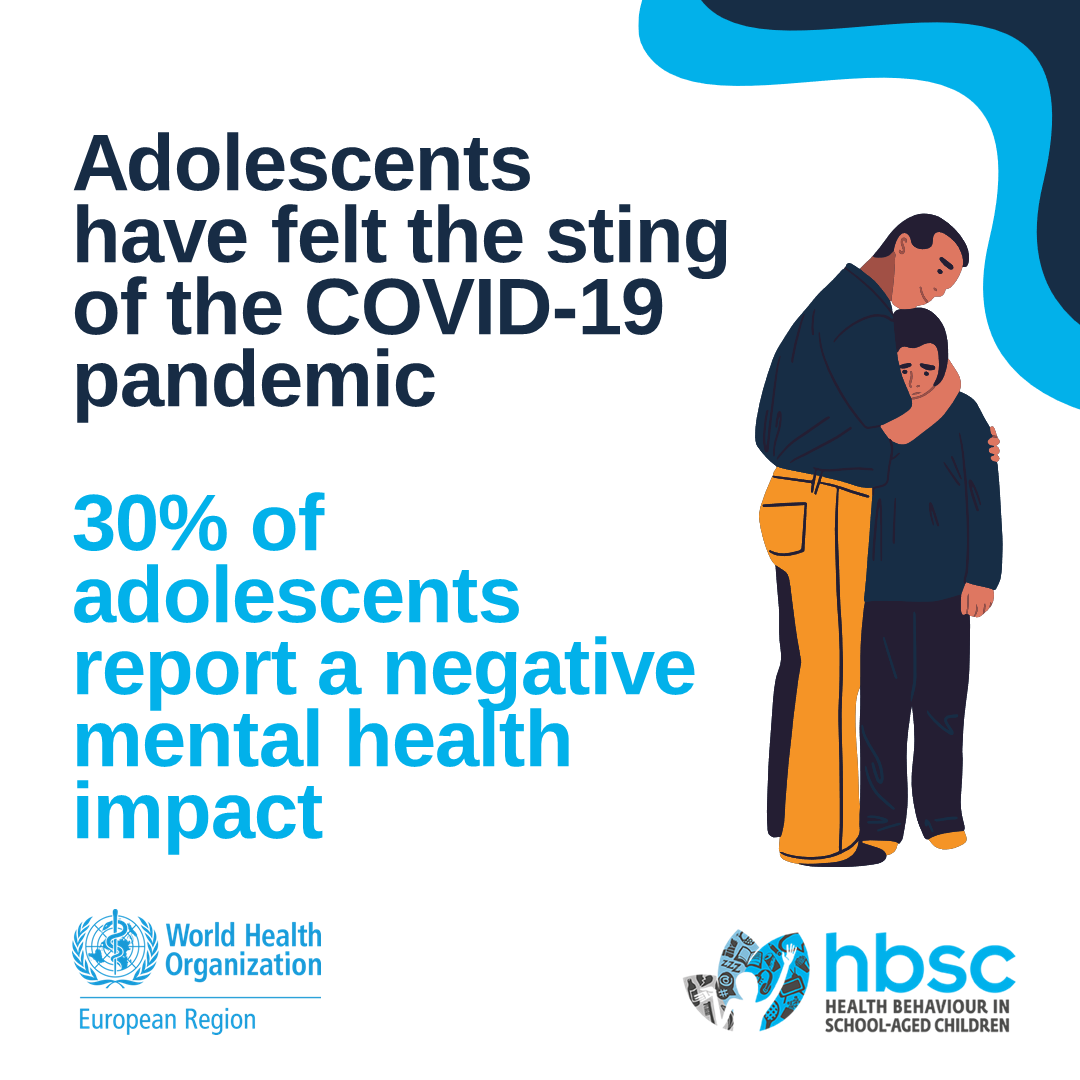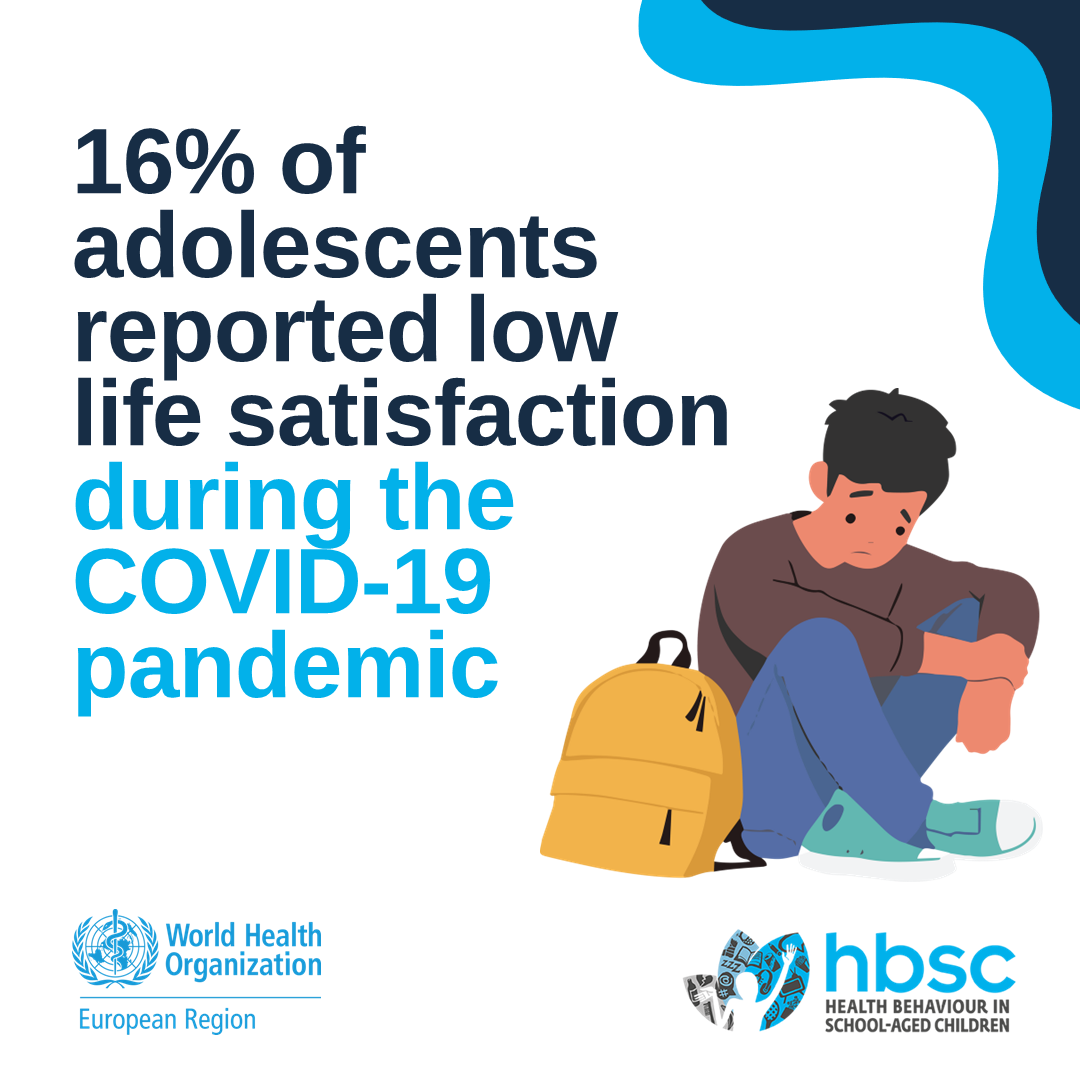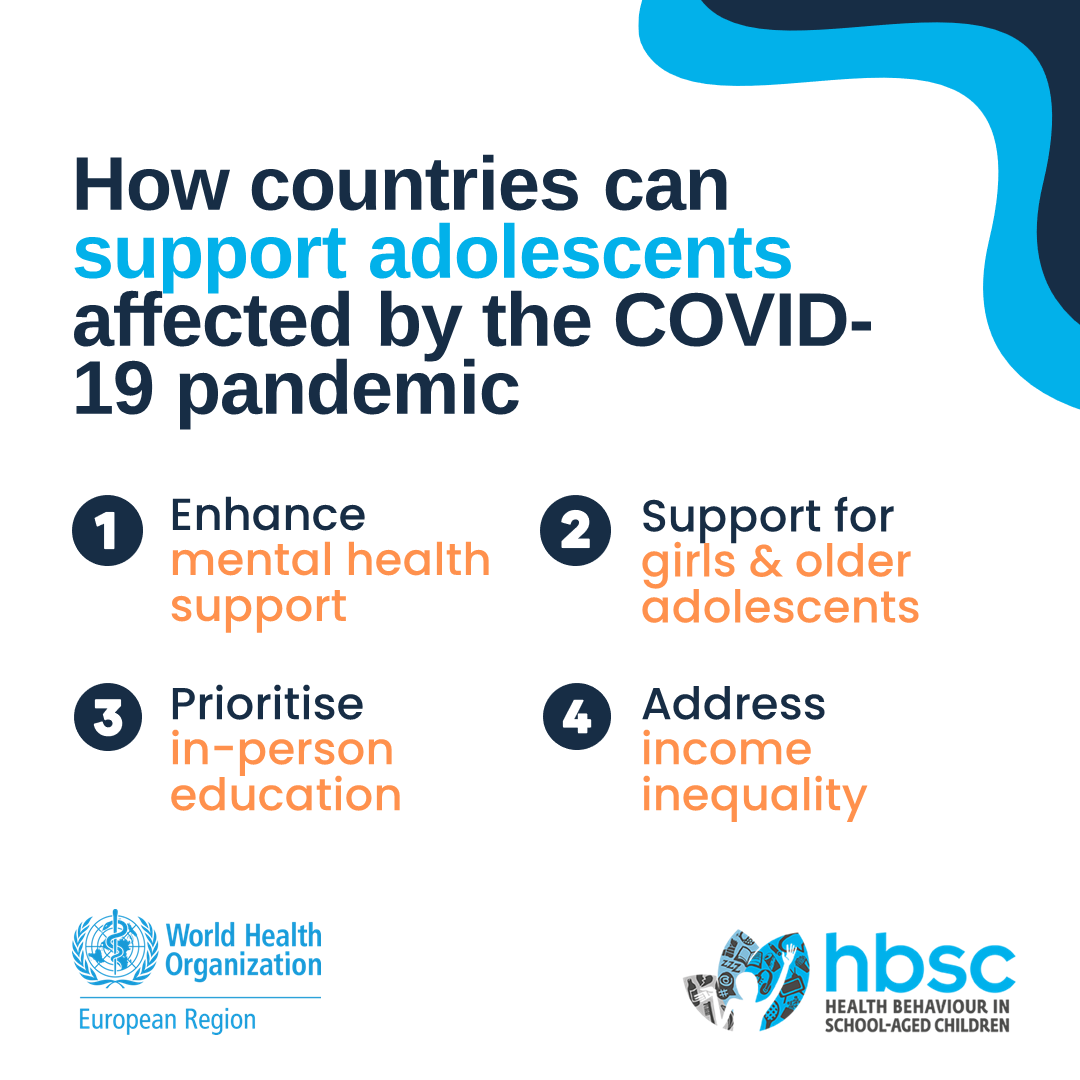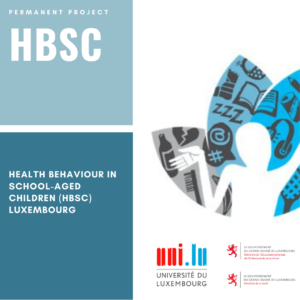Researchers can now provide scientific evidence of the impact of the COVID-19 pandemic on the health of young people in Europe, thanks to four new reports from the WHO partner study “Health Behaviour in School-Aged Children” (HBSC for short). The Luxembourg branch of HBSC is based at the Centre for Childhood and Youth Research at the University of Luxembourg and played a leading role in the publication of the reports:
Researchers from Luxembourg developed the necessary measurement scales for data collection, compiled country data for Luxembourg, and wrote thematic reports covering the 22 countries within the internationally based HBSC research group.
Regarding the impact of the COVID-19 pandemic on adolescent health, the reports examine age, gender, and class variables, analyze the effects of school closures and of social support for adolescents, and look at adolescent mental health and well-being. WHO has now released this series of reports. The impact of COVID-19 on adolescent health in the WHO European Region can now be illustrated based on data from the latest round of the 2021/2022 survey.
Jump to content
Age, gender, and class
Using a measurement scale co-developed by her, Dr. Caroline Residori (Centre for Childhood and Youth Research, CCY) and her co-authors monitored the impacts of the COVID-19 pandemic on young people for the variables of age, gender, and class.
On the international level, negative impacts were mostly related to mental health, physical activity, and school performance. Positive impacts were related to relationships with family and friends. Girls, older adolescents, and adolescents from less affluent families least often reported positive impacts in most areas of their lives.
In Luxembourg, young people overall fared better compared to the mean of the 22 countries under scrutiny: the share of young people in Luxembourg who experienced more positive impacts of the COVID-19 pandemic was usually higher than in more than half of all other 22 countries. However, there were substantial differences in the impact of the pandemic on adolescents in Luxembourg according to age, gender, and class:
Gender
For Luxembourg, data of the current survey round show that girls reported negative impacts of the COVID-19 pandemic in most areas of their lives more often than boys. Girls in Luxembourg also less often reported positive impacts – significantly less often than the mean of the 22 European countries under observation.
Age
For Luxembourg, data of the current survey round show that adolescents aged 15 less often than adolescents aged 11 to 13 years reported positive impacts of the COVID-19 pandemic in most areas of their lives. In comparison to the differences in the mean of the 22 countries, the difference between the younger and oldest age group under scrutiny in Luxembourg is higher.
Class
For Luxembourg, data of the current survey round show that adolescents from low affluent families more often reported negative impacts of the COVID-19 pandemic in most areas of their lives than their peers. They also less often reported positive impacts. In comparison to the mean of the 22 countries, the social gradient in perceived impacts of the COVID-19 pandemic in Luxembourg is more pronounced.
School closures
In their report “Navigating unchartered territory”, Joana Lopes Ferreira (Centre for Childhood and Youth Research, CCY) co-authored the WHO study on the impacts on young people stemming from school-closures related to the COVID-19 pandemic.
On the international level, almost half of the adolescents reported experiencing some or a lot of school pressure, with those having more school closure days being more likely to report this. School closure days were not linked to perceived impact on school performance or liking school.
In Luxembourg, young people overall fared better compared to the mean of the 22 countries under scrutiny: Luxembourg had relatively few days of full school closure (49 days compared to a mean of 138 days for 22 countries according to WHO PHSM).
For a more detailed assessment of school closures, read the WHO report by Elgar, Frank J., Lahti, Henri, Ferreira Lopes, Joana, Melkumova, Marina & Blitz, Ludwig. (2023) or the one-page summary.
Social support for adolescents
In their report “A network of care“, Charli Erikkson (Karolinska Institutet, Stockholm) and his colleagues researched the importance of social support for adolescents in the WHO European Region during the COVID-19 pandemic.
On the international level, family support was most associated with the perceived impacts of the COVID-19 pandemic, followed by support from teachers, classmates, and the least from friends.
In Luxembourg (as in 13 other countries), adolescents with positive perceived impacts of the pandemic had a higher prevalence of high social support in all four social support areas: friends, family, classmates, and teachers.
In comparison to the mean of the 22 countries, the differences in the perceived impacts of the COVID-19 pandemic for adolescents in Luxembourg reporting high vs. low levels of social support from their family are more pronounced.
For a more detailed assessment of social support for adolescents,read the WHO report by Erikkson, Charli, Boniel-Nissen, Meyran, Lyyra, Nelli, Moor, Irene, Paakkari, Leena. et al. (2023) or the one-page summary.
Mental health and well-being
In their report “Coping through crises” Alina Cosma (Trinity College, Dublin) and her colleagues researched COVID-19 pandemic experiences and adolescent mental health and well-being in the WHO European Region.
On the international level, girls reported higher levels of negative impacts on their mental health and well-being than boys, as did 15-year-olds compared to 11-year-olds. Adolescents who reported negative impacts of the COVID-19 pandemic on school performance and relationships with family and peers more often rated their current mental health and well-being negatively and reported psychological health complaints.
In comparison to the mean of the 22 countries, in Luxembourg adolescents reported positive impacts of COVID-19 pandemic on their mental health and well-being a little more often and negative impact a little less often.
In Luxembourg there are, however, substantial gender differences in reporting negative impacts of the COVID-19 pandemic on adolescent mental health and well-being in Luxembourg, with girls reporting negative impacts of the COVID-19 pandemic on their mental health and well-being nearly double as often as boys.
Girls in Luxembourg who reported negative impacts of the COVID-19 pandemic on their relationships with their family and their peers more often reported high levels of psychological and physical health complaints than boys, and, than the mean for girls in the 22 countries. Boys in Luxembourg reported levels similar to the mean of all 22 countries. The gender differences in Luxembourg are some of the highest gender differences seen across the 22 countries.
For a more detailed assessment of adolescent mental health and well-being, , read the WHO report by A. Cosma, M. Bersia, S. Abdrakhmanova, P. Badura & I. Gobina. (2023) or the one-page summary.
Policy recommendations
The insights from these reports can help policymakers target measures to mitigate long-term impacts of the COVID-19 pandemic for the most affected adolescents and to prevent negative impacts in future pandemics by considering the unique needs of children and adolescents during times of crisis. Some key recommendations derived from the reports by the WHO for policy to take into consideration are:
- The negative impact of the pandemic on adolescents’ mental health underscores the need for policies that increase access to mental health resources and support. Mental health support programs should be tailored to the most affected groups of adolescents- girls, older adolescents, and those from less affluent families. Other groups of adolescents, however, should not be deprived of resources.
- The crucial role of family support and other forms of social support during crises should be recognised and warrants the implementation of policies and programmes that create supportive environments in schools, families and peer groups. Programs and initiatives that support parents in strengthening their relationships with their children should be considered.
- The link between school closure days and a negative impact of the pandemic suggests, that countries should use school closures in future health emergencies cautiously and consider alternative measures to offset the increased experiences of school pressure. Teachers should be equiped with necessary training and resources to provide robust student support and foster safe, inclusive classroom environments, even in situations of physical distancing or remote learning.
- The social gradients in the impact of the pamdemic suggests a need for policies that address income inequality and for additional support offers to adolescents from less well-off families, acknowledging their higher risk of experiencing negative impacts during health crises.
For more practical and detailed policy recommendation consult the press release of WHO Europe.
About HBSC
Health Behaviour in School-aged Children (HBSC) is a WHO collaborative cross-national study of adolescent health and well-being. The survey is undertaken every four years using a self-report questionnaire. The Luxembourg branch of Health Behaviour in School-aged Children (HBSC) is hosted at the University of Luxembourg’s Centre for Childhood and Youth Research (CCY) under the co-principal investigation of Dr. Carolina Catunda.
Luxembourg has regularly participated in the HBSC study since 2006 (2010, 2014, 2018 and 2022). Interactive data visualization on HBSC Luxembourg Trends 2006-2022 shows the evolution of key indicators of the health and well-being of adolescents in Luxembourg between 2006 and 2022. For more information on the HBSC Luxembourg, please visit hbsc.lu.


